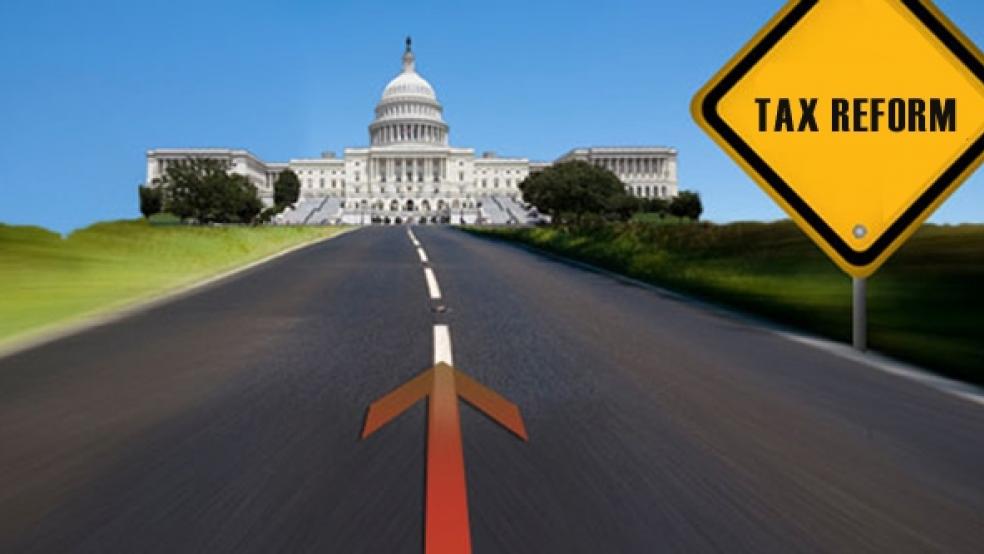The “Big Six” members of Congress and the Trump administration negotiating a tax reform package are making progress.
The group has reached a “broad consensus” on the key question of how to pay for cuts in the individual and corporate tax rates, Politico reports — namely, which loopholes and tax breaks to put on the chopping block. The proposals that have found consensus reportedly include a one-time tax break for repatriated corporate earnings, which would likely be taxed between 22 percent and 25 percent, and eliminating the deductibility of state and local tax payments.
Related: Paul Ryan Says Tax Reform Will Be 'Far Easier' Than Health Care
While that skeletal framework comes as a welcome sign of progress to some, many thorny issues remain unresolved, including whether the tax overhaul will add to the deficit over the 10-year budget window. White House officials and some of those negotiating the tax bill are reportedly more open to that possibility than many of their Congressional counterparts. “Yes, we will be open to losing tax revenues in these early years," Rep. Kevin Brady, chairman of the tax-writing House Way and Means Committee, said last week.
And other contentious questions remain, Politico’s Cook writes, including some that are likely to be derided by budget hawks as gimmicky or problematic:
“Another outstanding major question is whether all of the tax cuts suggested are permanent, or if the package becomes a mixed one of permanent and temporary tax cuts, some of which would sunset after 10 years.… A mix of permanent and temporary cuts could, on paper, look to the budget scorers like something that would not add to the deficit over the typical 10-year window and would allow politicians more cover to pass such a package.”
Keep in mind: It’s relatively easy to be optimistic at this stage, before the details of the tax bill have been fleshed out and before the public and special interest groups have had a chance to weigh in on specific legislative language. But as Lindsey McPherson points out at Roll Call in a piece reviewing the recent history of failed tax reform efforts, messaging generalities and broad outlines of principles may be easier to build support for than an actual bill. She warns that “all the rah-rah moments Republican lawmakers and outside GOP groups are trying to create over the current recess to show support for a tax overhaul won’t stop the backlash that will inevitably come from a variety of interest groups whose coveted tax breaks get cut in the GOP bill.”
Related: When Politicians Start Talking ‘Tax Reform,’ Check Your Wallet
In a new Harvard Business Review article, Eric Toder, co-director of the Tax Policy Center, predicts where the tax reform effort might end up. “Sadly, the combination of political polarization and one-party control of Congress by a narrow margin makes it very hard to get tax reform today,” he writes. “Instead, what we are more likely to see, based on ideas made public so far, is tax cuts with only partial revenue offsets and the reduction of only the tax breaks that Republicans oppose on ideological or political grounds.”
Read Toder’s full piece for an overview of why comprehensive tax reform is badly needed today, and a few creative suggestions for changing the tax system.





